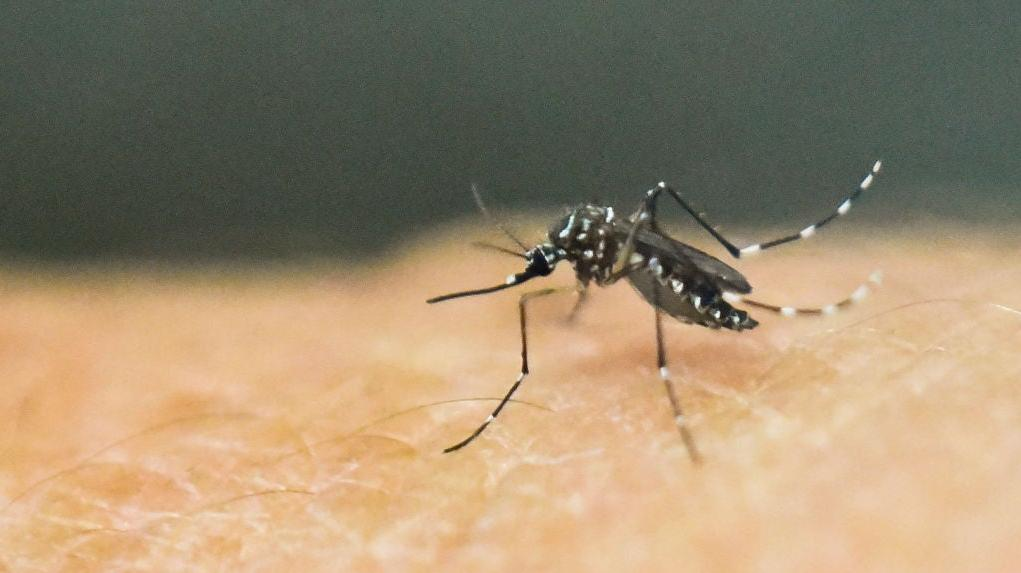Help, I Accidentally Ate A Horrible Bug
Should you be worried when you swallow a fly or inhale a mosquito? We checked with the experts.
It's a tale as old as time: girl stumbles to kitchen at 7 a.m.; girl blindly crams handful of Special K Chocolatey Delight into mouth; girl tastes unpleasant bitter tang; girl realizes Special K box is full of hungry ants and she's consumed no fewer than three live bugs before her morning cup of coffee.
Am I the girl in this scenario? No, of course not. I've never blindly eaten a handful of arthropods and then spent 20 minutes hyperventilating, convinced the ants will crawl out of my stomach and into my brain, killing me instantly. I've certainly never done that. But for those of you who have (once again, can't relate, sorry!), I decided to check with an insect expert. As we sweat our way through these buggy late summer days, I want to make sure I'm not putting myself in grave danger.
What happens if you accidentally eat a horrible bug?
Quick note: bugs are a legitimate and enjoyable source of protein served around the world. The EU recently approved mealworms for human consumption; residents of a region of Brazil dip winged queen ants in chocolate every year. The Takeout receives a press release about cricket protein bars every other day. But we're not talking prepared bugs here. We're talking about live, wild, possibly dirty bugs that crawled out from God knows where and just happened to hitch a ride on your bologna sandwich.
Scenario #1: I accidentally ate a handful of ants for breakfast
Once again, can't relate to this scenario! Regardless, entomologist Wyatt West told me that most arthropods, including ants, are harmless outside of the possibility of an allergic reaction. "Due to the fact that they are related, if a person has allergies to shellfish they may sometimes have allergies to insects and their closest cousins," West says. Other than that relatively slim possibility, the occasional handful of ants probably won't kill you.
Scenario #2: A bully made me eat a bunch of earthworms
Do not, I repeat, do not go into your garden and eat some worms. "A person should never eat wild snails, slugs, or earthworms as they commonly carry a ton of nasty parasites," West says, adding that eating large quantities of wild insects is never a good idea. "In the wild, insects can pick up all sorts of nasty parasites like nematodes or tapeworms. Eating a wild insect could result in a human getting that same parasitic infection."
Scenario #3: A mosquito flew down my throat
Here's a lighthearted scenario to consider: you're enjoying a leisurely bike ride and laughing at a wholesome joke when, BAM, a mosquito flies right into your mouth and you inhale it. Hypothetically, if that mosquito had just sucked someone else's blood, and their blood was infected with some kind of disease, could you contract the disease as the mosquito makes its way to your stomach?
Probably not, says West. "Mosquitos cannot contract a disease, like HIV/AIDS, coronavirus, et cetera," he tells me over email. "These diseases are designed to specifically target human immune systems and will not survive inside of a mosquito. The chances of a mosquito transmitting a parasite that is not designed to specifically use mosquitoes as vectors during their transmission cycle are so astronomically high it might as well be called impossible. Literally EVERYTHING in your life would have to go wrong within just a few seconds."
Scenario #3.5: Literally everything in my life went wrong in a matter of seconds
Just for fun, I had West explain the sequence of events that would have to occur in order for a human to contract, say, HIV/AIDS from an accidentally swallowed mosquito.
STEP 1: The mosquito would have to feed near a red blood cell infected with HIV/AIDS. (When someone has HIV/AIDS, not every one of their red blood cells is infected.) Then, a particle of the disease would have to cling to the mosquito's mouthpart as the mosquito withdraws from its host.
STEP 2: The mosquito would have to hop from the infected person to you incredibly quickly before the disease succumbs to the open air. "Mosquitoes do not just hop from one blood meal to another," West tells me, explaining that they'll usually enjoy a digestive period before moving on to their next victim. "So, you would have to have a mosquito that just decided not to follow its natural behavioral pattern." Okay, freak mosquito. Check.
STEP 3: The freak mosquito would have to stick its needle-like mouthpart into your body on the way down your throat. This is assuming the pathogen is still on the mosquito's mouthpart, instead of becoming dislodged or dying, which is the far more likely scenario.
Note: None of the above steps applies to diseases like malaria, which are designed to be transmitted by mosquitoes. But even then, as West tells me, very few mosquito-borne diseases could survive a trip through human stomach acid. "You'd be more likely to contract the disease by the mosquito feeding on you than by accidentally ingesting it," West says.
Ultimately, accidentally ingesting a mosquito probably doesn't pose any real danger. "Although I wouldn't recommend making a habit of running around eating mosquitoes," West adds. That's good news for you, me, and the ants who have made a home in my cereal box.
